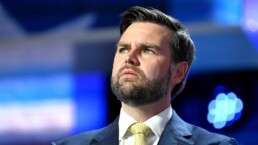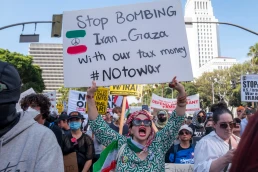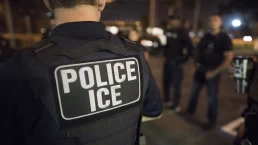The candidate of the left has establishment backing for Sunday’s vote. But below the level of the presidency, signs are more ominous.
by David Rieff, The New Republic
On Sunday, Brazilian voters will vote in a runoff election that will decide whether the far-right incumbent president, Jair Bolsonaro, is reelected, or if the leftist Luiz Inácio Lula da Silva, who served as Brazil’s president between 2003 and 2010, is returned to office.
That there will be a second round at all has come as a surprise to many, including in Brazil, where both many of Lula’s supporters and the pollsters had predicted that Lula would win in the first round. Prior to the election, some of the most important Brazilian polling firms, notably IPEC, Genial/Quaest, and Datafolha, had Lula defeating Bolsonaro by as many as 14 points, with support for him actually rising by several points in the week before the voting. Instead, Lula won the first round by only five points, a remarkable comeback by Bolsonaro, even in the highly volatile context of Brazilian electoral politics, and the tightest first-round vote in Brazil’s history since the return of democracy in 1985 after 21 years of military rule.

Brazilian pollsters have since justified this humiliating misreading of the electorate by invoking the so-called “embarrassed voter” theory, which holds that while voters on the left tend to be honest about whom they intend to vote for, voters on the right tend to be less so—though whether this is principally out of embarrassment about their intentions or because, encouraged by the Bolsonaro campaign, they mistrust and dislike pollsters whom they view as being on the left is a matter of debate. What is clear is that there is nothing especially Brazilian about polling organizations failing to accurately assess the right-wing vote, given that the same phenomenon occurred with British polling organizations in the run-up to Brexit and to their U.S. counterparts regarding support for Donald Trump in both 2016 and 2020.
Recent Posts
Is A Citizens United 2.0 Right Around The Corner?
July 15, 2025
Take Action Now Is it possible for American democracy to be further degraded by the influence of billionaires? Thanks to champion of the working…
U.S. Leaders Gave Up On Diplomacy With Iran. We Must Make Them Return To It.
July 15, 2025
Take Action Now Building an antiwar movement means preventing the systemic U.S. aggression that creates the conditions for war.By Hanieh Jodat,…
What To Do When You See ICE In Your Neighborhood
July 14, 2025
Take Action Now How can you deter the Trump administration’s immigrant deportation machine when it pops up in your community? Follow these…
ICE Campaign Of Violence Will Lead To More Deaths
July 14, 2025
Take Action Now Jaime Alanis’s death shows the horrific consequences of a secret police force behaving with utter impunity.By Natasha Lennard, The…




